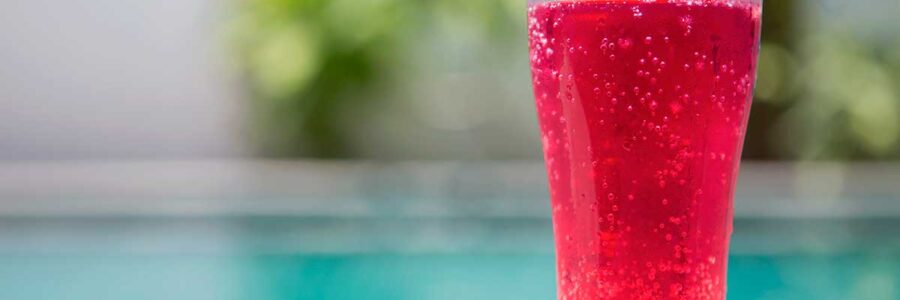Due to growing concerns about its ingredient composition, the increasingly health-conscious consumer base is turning its back on Hawaiian Punch, a once-popular beverage. This trend highlights a broader shift towards healthier dietary choices.
High Fructose Corn Syrup: A Key Concern
Hawaiian Punch’s primary sweetener, high fructose corn syrup (HFCS), is a major cause for alarm. HFCS, linked to obesity, diabetes, and heart disease, is absorbed more rapidly into the bloodstream than natural sugars, potentially leading to insulin resistance and increased fat storage.[1]
Artificial Colors: Potential Risks
The drink’s bright hues come from artificial colors like Red 40 and Blue 1. Despite FDA approval, these additives have been associated with behavioral issues in children, such as hyperactivity, and are banned in many European countries.[2-3]
Preservatives and Artificial Flavors: Chemical Worries
Preservatives in Hawaiian Punch, like potassium sorbate and sodium hexametaphosphate, extend shelf life but have been linked to health issues, including harmful bacterial growth in the gut. Artificial flavors, while enhancing taste, add no nutritional value and raise concerns about synthetic ingredients in our diets.[4]
Health Hazards of Hawaiian Punch
Regular consumption of such sugary drinks can lead to weight gain and metabolic issues. They are high in calories but don’t provide the satiety of solid foods, encouraging overconsumption.[5] For children, the high sugar and artificial additives can contribute to dental problems and potentially impact cognitive development.[2,6-7]
Long-Term Health Implications
Hawaiian Punch and similar beverages are associated with chronic conditions like type 2 diabetes and heart disease. The absence of essential nutrients in these drinks compounds these risks.[1,3,5]
Healthier Alternatives
In response, many are turning to healthier options:
- Natural fruit juices without added sugars or artificial flavors offering vitamins and antioxidants.
- Infused water, using natural ingredients for flavor without added sugars.
- Herbal teas provide therapeutic benefits and are calorie-free.
- Whole fruits, vegetables, and natural sweeteners like honey, all brimming with fiber and essential nutrients, come together in delicious smoothies.
Conclusion
The decline in Hawaiian Punch’s popularity is part of a larger movement towards health and wellness. It reflects a deeper awareness of the impact of ingredients on our health, driving the demand for more natural, nutritious food and beverage options.
References:
- Malik, Vasanti S, and Frank B Hu. “Fructose and Cardiometabolic Health: What the Evidence From Sugar-Sweetened Beverages Tells Us.” Journal of the American College of Cardiology vol. 66,14 (2015): 1615-1624.
- MacNeil, Matt. “New Report Shows Artificial Food Coloring Causes Hyperactivity in Some Kids.” UC Berkeley Public Health, 24 May 2021.
- Rabin, Caryn. “What Foods Are Banned in Europe but Not Banned in the U.S.?” The New York Times, 28 Dec. 2018.
- Malik, Ajamaluddin et al. “Hexametaphosphate, a Common Food Additive, Aggregated the Hen Egg White Lysozyme.” ACS omega vol. 8,46 (2023): 44086-44092.
- Njike, Valentine Yanchou et al. “Snack Food, Satiety, and Weight.” Advances in nutrition (Bethesda, Md.) vol. 7,5 (2016): 866-78.
- NHS Choices, 2014. “Tooth Decay.”
- Wadyka, Sally. “The Link between Highly Processed Foods and Brain Health.” The New York Times, 4 May 2023.


